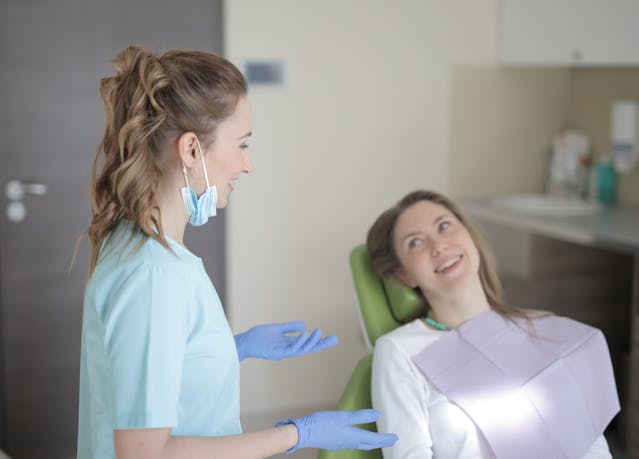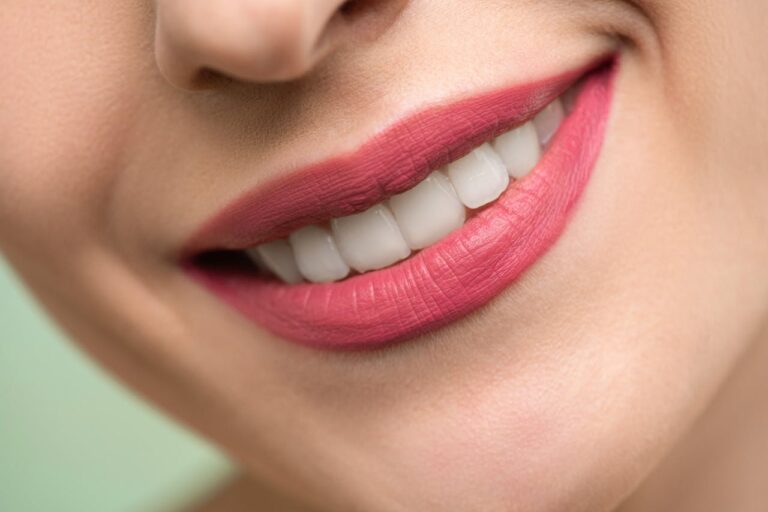Botox, known for its wrinkle-reducing effects in cosmetics, has surprisingly found its way into the dentist’s office. But what exactly is dental Botox, and is it right for you?
What Dental Botox Means
Dental Botox refers to the use of Botox injections by a dentist to address specific dental concerns or enhance your smile. It’s different from the cosmetic Botox procedures typically performed by dermatologists.
Botox is a brand name for purified botulinum toxin used to relax muscles. The bacterium Clostridium botulinum produces this toxin and it works by blocking signals from nerves to muscles, causing them to relax.
In dentistry, Botox targets muscles in the jaw and face. This can address issues like teeth grinding, TMJ disorders, and facial pain. In some cases, it helps to smoothen wrinkles around the mouth for cosmetic purposes.
Dental Botox is a minimally invasive procedure that can provide therapeutic benefits for certain dental conditions.
Who Needs a Dental Botox Treatment?
Dental Botox can be beneficial for different patients experiencing different dental issues. Here’s a breakdown of who might be a good candidate:
- TMJ patients: If you experience jaw pain, headaches, or difficulty chewing due to TMJ dysfunction, Botox can relax your muscles and provide relief.
- Grinders and Clenchers: Do you wake up with a sore jaw or have worn-down teeth? Botox injections in the masseter muscle – one of the four muscles for chewing – can help reduce teeth grinding (bruxism) and the associated pain.
- Chronic Facial Pain: Tension headaches or facial pain caused by tight jaw muscles? Botox can relax those muscles, offering relief and reducing discomfort.
- Gummy Smile: If you’re self-conscious about excess gum tissue showing when you smile, Botox can help. It relaxes the muscle that lifts your upper lip, reducing gum exposure for a more balanced smile.
- Denture Wearers: Do your dentures feel uncomfortable or ill-fitting? Tight facial muscles can be the culprit. Botox can relax these muscles, improve denture fit, and reduce irritation.
- Orthodontic Treatment Patients: In some cases, certain muscles can slow down tooth movement during orthodontic treatment. Botox can help by relaxing these muscles, shortening your treatment time.
Benefits of Dental Botox Treatments
Here are 6 ways Botox can improve your smile and overall well-being:
TMJ Pain Relief
The temporomandibular joint (TMJ) connects your jaw to your skull. TMJ disorders cause pain, headaches, and chewing problems.
Botox injections relax muscles around the TMJ, reducing pain and inflammation and allowing you to chew and move your jaw comfortably.
Bruxism Reduction
Bruxism is involuntary teeth grinding or clenching, often at night. It leads to headaches, jaw pain, and worn teeth.
Botox in the masseter muscle (responsible for clenching) helps prevent grinding, reduce pain, and protect your teeth from damage.
Facial Tension Relief
Tight jaw muscles can cause tension headaches and facial pain.
Botox injections relax these muscles, alleviating pain and tension and leaving you feeling refreshed and headache-free.
Gummy Smile Correction
A gummy smile shows excessive gum tissue when you grin. Botox relaxes the muscle that lifts your upper lip, reducing gum exposure during a smile.
This can significantly improve your confidence and overall smile aesthetics.
Improved Denture Fit
Tight muscles around the lips and cheeks can make dentures uncomfortable and ill-fitting.
Botox relaxes these muscles, allowing for a better denture fit, reducing irritation, and improving your ability to speak and eat comfortably.
Dangers to Look Out for with Dental Botox Treatments
Here are some of the potential risks:
- Common side effects are temporary and typically go away within a few weeks. They include swelling, bruising, headaches, and pain at the injection site.
- Allergic reactions: Although rare, allergic reactions to Botox can occur. Symptoms can include itching, rash, trouble breathing, and dizziness.
- Temporary changes in facial expressions: Botox works by relaxing muscles, and depending on the injection site, this could lead to temporary drooping of the eyelid or eyebrow or a crooked smile.
- Spread of toxin: There is a slight risk that the Botox could spread to nearby muscles, causing unintended weakness or drooping.
If you are considering dental Botox, discuss the risks and benefits with a qualified dentist. They can help you decide if it is the right treatment for you and will take steps to minimize the risk of complications.
The Dental Botox Procedure
There isn’t a universally ideal dental Botox procedure because it depends on your goal. However, here’s what typically goes into a dental Botox procedure, but it can vary based on your dentist’s approach and your specific needs:
Consultation
A thorough discussion about your goals and medical history is crucial. The dentist will assess your mouth, jaw, and facial features to determine if Botox is right for you and where injections would be most effective.
Preparation
Your dentist might advise you to avoid certain medications or alcohol intake before the procedure to minimize bleeding or bruising.
The Procedure
It’s usually a quick in-office appointment. The dentist will likely clean and numb the injection sites. Then, they use a fine needle to inject tiny amounts of Botox into specific muscles.
The whole procedure typically takes around 20 minutes.
Recovery
Side effects are generally mild and temporary, such as swelling or tenderness. Your dentist will provide aftercare instructions, which might involve avoiding strenuous activity or rubbing the injection sites.
Here are some things to consider when looking for the right dentist for a Botox procedure:
- Dentist’s Qualifications: Ensure the dentist has experience administering Botox for dental purposes. Ideally, they should have undergone specific training in this area.
- Treatment Plan: A good dentist will create a personalized plan based on your consultation and desired outcome. They should explain the number of injection sites, the expected dosage, and the potential risks involved.
- Communication: Feeling comfortable discussing your concerns and expectations openly with your dentist is important. Choose someone who listens attentively and addresses your questions clearly.
Dental Botox Costs and Influencing Factors
Dental Botox injections can offer numerous benefits, but the cost can vary depending on several factors. Generally, dental Botox costs range from $400 to $1,200 per treatment.
Factors Affecting Dental Botox Costs
- Number of Units: Botox is priced per unit, and the number you’ll need depends on the area treated and your desired outcome. More complex procedures requiring more units will cost more.
- Geographic Location: Costs can vary depending on your location. Big cities with a higher cost of living might have pricier treatments.
- Dentist Experience: Experienced dentists with a strong reputation for injectable procedures may charge more.
- Consultation Fees: Some dentists might charge a separate consultation fee to discuss your needs and determine the best approach.
Botox is not always covered by insurance for dental applications. Ask about the cost upfront to avoid surprises.
Breathe Easier with Dental Botox at Advanced Dental Arts
Dental problems can often extend beyond your teeth. Clenching, grinding, and TMJ pain can cause headaches, facial discomfort, and even damage your smile.
At Advanced Dental Arts, we offer dental Botox as a safe and effective solution to help you achieve lasting relief.
Our highly qualified dentists have extensive experience using Botox to treat TMJ and other dental concerns. They’ll thoroughly evaluate your needs and answer any questions you have to determine if dental Botox is the right solution.
Don’t wait to find relief! Contact Advanced Dental Arts today to schedule your consultation.






